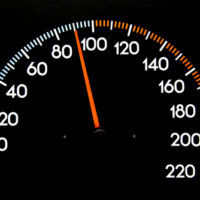Fatal Head-On Wreck In Fort Pierce

Authorities are still trying to figure out what caused a loss-of-control crash which killed a driver on Highway 1.
The wreck occurred in the 5400 block of Highway 1. According to police and witnesses, the driver of a southbound Chevrolet pickup lost control of his vehicle and crossed into the northbound lanes. The pickup smashed into a northbound Honda Accord. First responders rushed both drivers to a nearby hospital. The Chevrolet driver died at the hospital, but the Accord driver is expected to recover.
The Fort Pierce police closed the highway for about two hours as they investigated the crash.
Loss-of-Control Crashes in Port St. Lucie
When a driver loses control of a vehicle, a medical episode or excessive speed is normally the cause. Both of these scenarios give rise to a negligence claim.
Thousands of people in Florida struggle with conditions like heart problems, diabetes, and epilepsy. Any one of these illnesses might cause a sudden loss of consciousness. Normally, the person has no warning whatsoever. As a result, it is very, very dangerous for such people to operate motor vehicles.
Arguably, such behavioral negligence is the worst kind of neglect. People who get behind the wheel even though they know they have a medical condition intentionally put other people at risk. The same thing applies to people who drive while fatigued, after drinking alcohol, or after using certain drugs.
If their negligence causes injury, the tortfeasors (negligent drivers) are liable for damages. In a serious injury case, these damages include compensation for economic losses, such as lost wages, and noneconomic losses, such as emotional distress. Moreover, if there is clear and convincing evidence of intentional neglect, a Florida jury may add punitive damages on top of the compensatory damages.
Speed also contributes to many loss-of-control collisions. Many times, a speeding driver oversteers into a turn. Then, the driver overcorrects while trying to keep the car on the road. The result is usually a complete loss of control.
Excessive speed usually gives rise to the negligence per se rule. Even if the tortfeasor is not exceeding the posted limit, the tortfeasor could still be speeding. The posted limit is only a presumed reasonable speed. A reasonable velocity varies under different conditions. The negligence per se doctrine applies if:
- The tortfeasor broke a safety law, and
- That infraction substantially caused the damages.
In Florida, if the tortfeasor broke a traffic or other non-criminal law, negligence per se is usually a presumption of negligence.
The Last Clear Chance Defense in Florida
Head-on and rear-end crashes in Port St. Lucie usually involved the last clear chance defense. This doctrine excuses tortious conduct if the victim had a reasonable chance to avoid the crash, but did not take advantage of that opportunity.
In head-on crashes, the insurance company often argues that the victim should have seen the oncoming car and moved out of the way. However, there is a difference between the last clear chance and any possible chance. For example, in loss-of-control wrecks, the tortfeasor is often moving all over the road. It’s not possible to get out of the way, because you do not know where the tortfeasor is headed next.
Reach Out to Hard-Hitting Lawyers
Loss-of-control crashes often cause serious injuries. For a free consultation with an experienced personal injury attorney in Port St. Lucie, contact Eighmie Law Firm, P.A. Attorneys can connect victims with doctors, even if they have no money or insurance.
Resource:
tcpalm.com/story/news/local/st-lucie-county/2018/06/23/fort-pierce-police-head-crash-u-s-1-kills-18-year-old-cheyenne-hayes/728716002/
